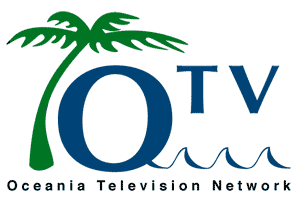Regional news is a vital part of our programming schedule. Daily news shows and updates bring important local, regional and global news events to many island nations for the first time. While global news will come from the traditional sources, the important regional and local issues will be addressed by Otv representatives across the islands. Internet, satellite and air transport will bring reports to Otvs newsroom in Palau for editing and broadcasting.
STANDARDS FOR REPORTING AND WRITING
ALL Our members of staff follow the Oceania Television Network code of conduct that is as follows:
- A journalist has a duty to maintain the highest professional and ethical standards.
- A journalist shall at all times defend the principle of the freedom of the press and other media in relation to the collection of information and the expression of comment and criticism. He/she shall strive to eliminate distortion, news suppression and censorship.
- A journalist shall strive to ensure that the information he/she disseminates is fair and accurate, avoid the expression of comment and conjecture as established fact and falsification by distortion, selection or misrepresentation.
- A journalist shall rectify promptly any harmful inaccuracies, ensure that correction and apologies receive due prominence and afford the right of reply to persons criticized when the issue is of sufficient importance.
- A journalist shall obtain information, photographs and illustrations only by straightforward means. The use of other means can be justified only by overriding considerations of the public interest. The journalist is entitled to exercise a personal conscientious objection to the use of such means.
- A journalist shall do nothing that entails intrusion into anybody’s private life, grief or distress, subject to justification by overriding considerations of the public interest.
- A journalist shall protect confidential sources of information.
- A journalist shall not accept bribes nor shall he/she allow other inducements to influence the performance of his/her professional duties.
- A journalist shall not lend himself/herself to the distortion or suppression of the truth because of advertising or other considerations.
- A journalist shall mention a person’s age, sex, race, color, creed, illegitimacy, disability, marital status, or sexual orientation only if this information is strictly relevant. A journalist shall neither originate nor process material that encourages discrimination, ridicule, prejudice or hatred on any of the above-mentioned grounds.
- No journalist shall knowingly cause or allow the publication or broadcast of a photograph that has been manipulated unless that photograph is clearly labeled as such. Manipulation does not include normal dodging, burning, color balancing, spotting, contrast adjustment, cropping and obvious masking for legal or safety reasons.
- A journalist shall not take private advantage of information gained in the course of his/her duties before the information is public knowledge.
- A journalist shall not by way of statement, voice or appearance endorse by advertisement any commercial product or service save for the promotion of his/her own work or of the medium by which he/she is employed.
All freelance photographers and journalists will be required to follow these regulations.
